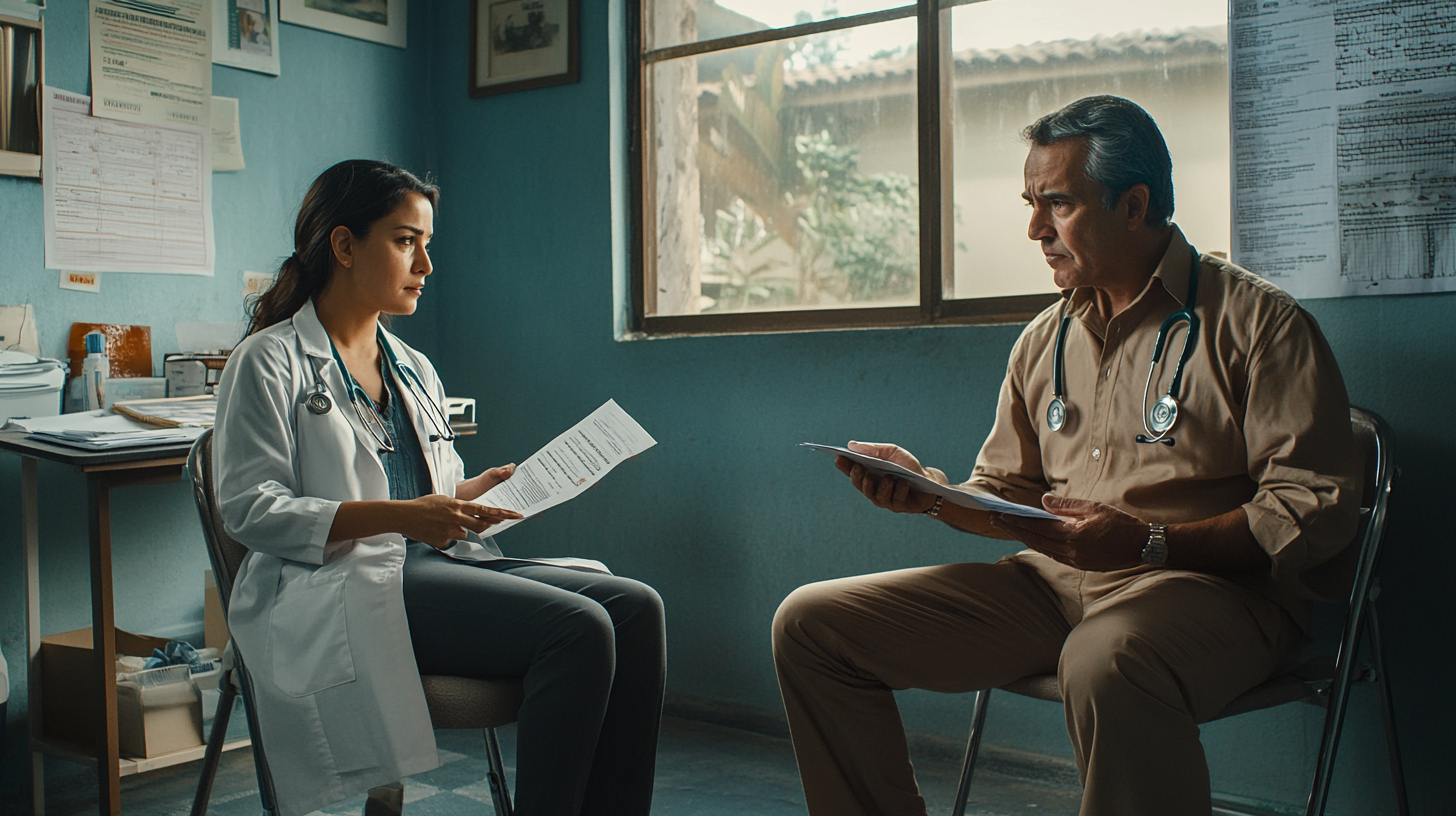Travel Insurance 101: Your Comprehensive Guide to Peaceful Journeys
Traveling is more than just moving from one place to another; it’s an adventure that opens doors to unforgettable experiences and broadens horizons in ways nothing else can. Whether you’re exploring the cobblestone streets of a historic European city, hiking through lush tropical rainforests, or simply relaxing on a serene beach, the world is full of wonders waiting to be discovered. However, amidst the excitement and anticipation, it’s easy to overlook the uncertainties that can accompany travel. From unexpected medical emergencies to lost luggage and trip cancellations, unforeseen events can disrupt even the most meticulously planned trips.
This comprehensive guide dives deep into the world of travel insurance, offering a fun and straightforward breakdown of the different types of coverage, when it’s worth investing in, and how to shop for the best plan. Armed with this knowledge, you can embark on your journeys with confidence and peace of mind, knowing you’re protected against the unexpected.
Why Travel Insurance Matters

Unexpected situations can transform a dream vacation into a stressful ordeal. Travel insurance acts as a safety net, providing both financial and logistical support when things don’t go as planned. It covers a range of potential issues, ensuring that travelers can navigate challenges confidently and continue enjoying their adventures.
Travel insurance doesn’t just safeguard your wallet; it also offers invaluable assistance services. From finding quality medical care in a foreign country to replacing lost passports, insurance providers often offer 24/7 support to help you handle emergencies efficiently. Understanding the importance of Travel Insurance Essentials for a Worry-Free Trip is the first step toward securing your travels.
Real-Life Scenarios Highlighting the Importance

– **Medical Emergencies Abroad**: Consider Emily, an avid traveler who embarked on an exotic journey to Thailand. Midway through her trip, she was struck by a severe case of food poisoning, requiring immediate hospitalization. Faced with a hefty $3,000 medical bill—a significant unplanned expense—Emily was relieved to find that her travel insurance covered the costs. This not only saved her from financial strain but also provided support in navigating the healthcare system abroad.
– **Lost Luggage and Trip Delays**: Sarah and Mark, excited for their honeymoon in Italy, arrived in Rome only to find that their luggage hadn’t made the journey with them. All their essentials, including attire for special occasions, were missing. To add to their stress, a flight delay had already shortened their vacation time. Fortunately, their travel insurance policy covered the costs of purchasing new clothes and essentials, and compensated them for the lost time, allowing them to enjoy their honeymoon despite the setbacks.
The Different Types of Travel Insurance Coverage

Understanding the various coverage options is crucial to selecting a plan that best suits your needs. Here are the main types:
1. Trip Cancellation and Interruption

Trip cancellation and interruption coverage reimburse you for prepaid, non-refundable expenses if you need to cancel or cut short your trip due to unforeseen events like illness, natural disasters, or family emergencies. For example, if a sudden illness forces you to cancel a long-planned cruise, this coverage ensures you don’t lose your investment. Exploring the Comprehensive Guide on Trip Cancellation Coverage can help you understand how to protect your trip expenses effectively.
2. Medical Expenses Abroad

Medical coverage handles expenses related to injury or illness during your trip. This is especially vital for long journeys or destinations where healthcare costs are high. Without it, you could face exorbitant medical bills for emergency care or hospitalization. Understanding Medical Expense Coverage While Traveling Internationally helps you prepare for unexpected health issues abroad.
3. Emergency Medical Evacuation

In severe cases requiring transportation to a medical facility, emergency medical evacuation coverage takes care of evacuation costs, which can be exorbitant without insurance. From air ambulances to specialized transportation, these expenses can quickly add up. Learning about Emergency Medical Evacuation and Repatriation Services provides insight into how this coverage safeguards you in critical situations.
4. Baggage Loss and Damage

If your luggage is lost, stolen, or damaged, baggage loss and damage coverage compensates you for your personal belongings, ensuring you’re not left in a lurch. This can be especially comforting when traveling with valuable items or essentials. For tips on protecting your possessions, refer to the Baggage Protection and Security Guide .
5. Trip Delays

Trip delay coverage provides reimbursement for additional expenses incurred due to significant travel delays, such as accommodation and meals. Whether due to weather disruptions or airline issues, delays can strain your travel budget. Understanding Comprehensive Trip Delay Coverage helps you navigate these inconveniences smoothly.
6. Additional Add-Ons

– **Cancel For Any Reason (CFAR)**: CFAR offers the flexibility to cancel your trip for reasons not covered by standard policies, such as changes in work plans or simply changing your mind. Typically, this add-on reimburses up to 75% of prepaid expenses. For more details, see the Understanding Cancel For Any Reason Travel Insurance .
– **Terrorism Coverage**: This provides protection if your destination becomes unsafe due to terrorist activities, allowing you to cancel or interrupt your trip. Consulting the Terrorism Coverage in Travel Insurance Explained helps clarify how this can affect your travel plans.
– **Pet Care**: Covers costs associated with traveling pets, including veterinary services and emergency care. Learn more about Travel Insurance Options for Pet Owners to ensure your furry friends are also protected on your journey.
When Is Travel Insurance Worth It?

Determining the value of travel insurance depends on several factors, including your personal risk tolerance, potential financial losses, and health considerations.
Evaluating Your Risk Tolerance

Consider the nature of your trip:
– **Adventure Travel**: Engaging in activities like skiing, scuba diving, or mountain climbing increases the risk of injury. Specialized coverage ensures you’re protected during these high-adrenaline experiences. For a detailed assessment of risk factors, consult the Travel Risk Evaluation Guide .
– **Valuable Gear**: Traveling with expensive equipment such as cameras, laptops, or sports gear may warrant additional baggage coverage to protect against loss or damage.
– **Long-Term Trips**: Extended stays abroad amplify the potential for unexpected events. Long-term travel insurance provides continuous coverage, giving you peace of mind throughout your journey.
Assessing Potential Financial Losses

Calculate the total prepaid, non-refundable expenses. The higher the investment, the more beneficial insurance becomes. If a significant portion of your travel budget is tied up in bookings that can’t be refunded, insurance protects you from losing that money. Reviewing the Calculating Financial Loss in Travel Planning can help you understand the potential risks.
Health Considerations

– **Pre-Existing Conditions**: Some plans offer waivers if purchased early, covering pre-existing medical issues. This ensures that unexpected flare-ups don’t leave you with hefty medical bills abroad. For guidance on selecting insurance based on health needs, see Health Considerations in Travel Insurance Planning .
– **Destination Risks**: Traveling to areas with limited healthcare facilities or higher risk of illness may necessitate comprehensive medical coverage. Researching health risks associated with your destination can inform your insurance needs.
Shopping for the Best Travel Insurance Plan

Finding the right plan involves careful comparison and understanding of your specific needs. Here are some steps to guide you:
1. Compare Policies and Providers

– **Use Comparison Tools**: Platforms like Travel Insurance Master utilize smart algorithms to recommend suitable plans based on your trip details and preferences. This can save time and ensure you don’t overlook important coverage options.
– **Consider Reputable Providers**: Companies such as Allianz, AXA Assistance USA, World Nomads, and SafetyWing offer various plans tailored to different traveler profiles. Evaluating their offerings can help you find a policy that fits your needs. For an in-depth comparison, refer to the Comprehensive Travel Insurance Provider Comparison .
2. Key Factors to Consider

– **Coverage Limits**: Ensure the policy provides adequate protection for medical expenses, baggage, and cancellations. High coverage limits offer greater financial security.
– **Deductibles and Exclusions**: Understand what you’re required to pay out-of-pocket and what incidents are not covered. Reading the policy details carefully prevents surprises during claims.
– **Destination Specifics**: Some policies may have limitations based on the country you’re visiting. Ensure your destinations are covered, especially if traveling to areas with travel advisories.
For assistance in evaluating policy details, see the Travel Insurance Policy Selection Checklist .
3. Timing of Purchase

– **Buy Early**: Purchasing insurance soon after booking can make you eligible for additional benefits, like CFAR or pre-existing condition waivers. Early purchase ensures maximum coverage options.
– **Understand Policy Changes**: Coverage options and terms can evolve, especially in response to global events like the COVID-19 pandemic. Staying informed about changes prevents coverage gaps.
4. Read the Fine Print

– **Policy Details**: Thoroughly review terms and conditions to understand the scope of coverage and any limitations.
– **Customer Reviews**: Look into other travelers’ experiences with claims processing and customer service to gauge provider reliability.
Top Travel Insurance Providers and Their Offerings

Different insurers cater to varying needs. Here are some notable providers:
Allianz Travel Insurance

– **Strengths**: Offers comprehensive coverage with access to global assistance services. Their extensive network ensures help is available wherever you go.
– **Unique Features**: Specializes in medical emergency coverage and provides multiple plan options suitable for solo travelers, families, and business travelers.
AXA Assistance USA

– **Strengths**: Known for high reimbursement limits on luggage and comprehensive Platinum plans that offer extensive coverage.
– **Unique Features**: Provides coverage for trip delays and medical emergencies, with options to customize your policy based on specific needs.
AIG Travel Guard

– **Strengths**: Provides diverse plans suitable for spontaneous travel, with free coverage for accompanying children, making it ideal for family vacations.
– **Unique Features**: Customizable options allow travelers to select the coverage that best fits their itinerary and activities.
SafetyWing

– **Strengths**: Ideal for digital nomads and long-term travelers, with affordable rates and broad coverage that adapts to an on-the-go lifestyle.
– **Unique Features**: Emphasizes ease and flexibility, covering trip disruptions and worst-case scenarios, and even offers monthly subscription models for continuous coverage.
Faye Travel Insurance

– **Strengths**: Offers single-trip plans with generous coverage for trip delays and pet care, catering to travelers with unique needs.
– **Unique Features**: Focuses on customer satisfaction with user-friendly services and comprehensive protection that covers a wide range of potential issues.
The Impact of COVID-19 on Travel Insurance

The COVID-19 pandemic has reshaped the travel landscape, making insurance more essential than ever.
Increased Demand for Coverage

Travelers are seeking policies that address:
– **COVID-19 Related Cancellations**: Coverage for trip interruptions due to illness, quarantine requirements, or travel restrictions has become crucial. Understanding Travel Insurance in the Age of COVID-19 is vital for modern travelers.
– **Medical Coverage Abroad**: Assurance of medical care availability in foreign countries, including coverage for COVID-19 treatment, provides peace of mind.
Policy Adjustments and Add-Ons

– **Pandemic Coverage**: Some insurers now include or offer optional coverage for pandemic-related incidents, adapting to the new normal.
– **Flexibility Options**: CFAR add-ons provide increased flexibility amidst uncertain travel conditions, allowing travelers to adjust plans as needed.
Tips for Purchasing Travel Insurance

Ensure you’re making an informed decision with these tips:
1. Assess Your Needs

Evaluate the specific risks associated with your trip and personal circumstances. Consider factors like destination, activities planned, travel duration, and your health status.
2. Check Existing Coverage

– **Health Insurance**: Determine if your current policy covers international medical emergencies. Many domestic health plans do not provide coverage abroad.
– **Credit Card Benefits**: Some credit cards offer travel protections such as rental car insurance, trip interruption coverage, or baggage loss reimbursement. Understand what benefits you already have to avoid overlapping coverage.
3. Consider the Cost

– **Budget Appropriately**: Travel insurance typically costs 5-7% of the total trip expense. Factor this into your travel budget from the start.
– **Value Over Price**: Opt for a plan that offers the best coverage for your needs, not just the cheapest option. Comprehensive coverage may save you more in the long run.
4. Read Reviews and Ask for Recommendations

Gain insights from other travelers’ experiences to gauge the reliability of providers. Personal recommendations and online reviews can highlight strengths and potential issues with policies and customer service.
Final Thoughts

Investing in travel insurance is investing in peace of mind. It ensures that no matter where your adventures take you, you’re protected against the unforeseen. By understanding the types of coverage available, assessing when it’s worth it, and knowing how to shop wisely, you can embark on your journey with confidence.
Follow us back to milesBUZZ for more insights and tips on making the most of your travels. Whether it’s a short getaway or a long expedition, consider travel insurance as a crucial component of your trip planning. Armed with the knowledge from this Travel Insurance 101 Guide , you’re well-equipped to make informed decisions that safeguard your travel investments. Safe travels!
*Note: This guide is intended to provide general information on travel insurance. For specific policy details and personalized advice, consult directly with an insurance provider.*







